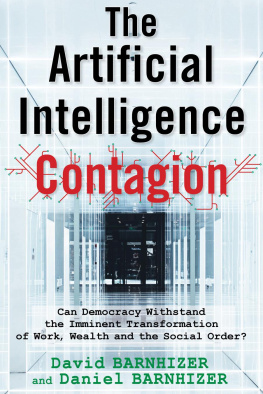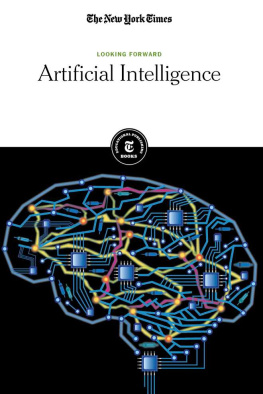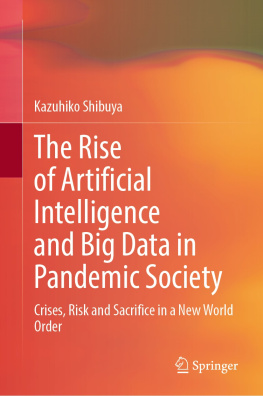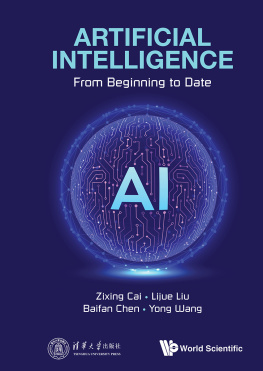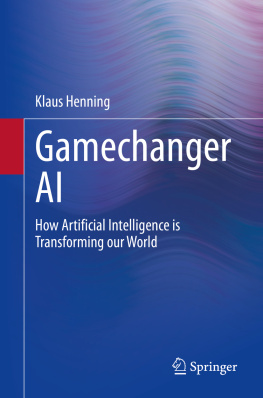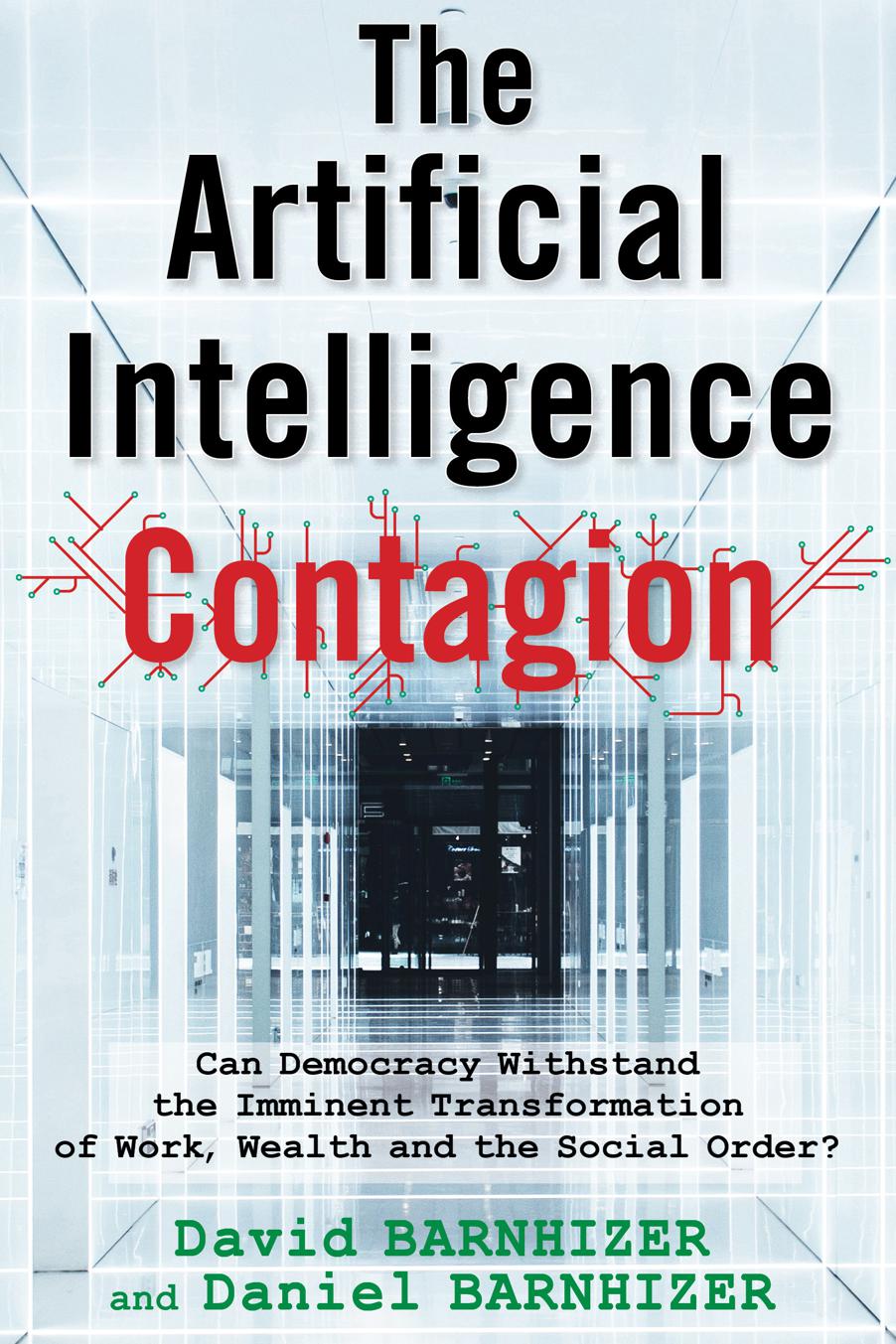THE ARTIFICIAL INTELLIGENCE CONTAGION
Can Democracy Withstand the Imminent Transformation of Work, Wealth and the Social Order?
David Barnhizer & Daniel Barnhizer
Clarity Press, Inc.
2019 David Barnhizer
ISBN: 978-0-9998747-7-6
Ebook ISBN: 978-0-9998747-8-3
Cover design: R. Jordan Santos
In-house editor: Diana G. Collier
ALL RIGHTS RESERVED: Except for purposes of review, this book may not be copied or stored in any information retrieval system, in whole or in part, without permission in writing from the publisher.
Library of Congress Cataloguing-in-Publication Data:
Clarity Press, Inc.
2625 Piedmont Rd. NE
Atlanta, GA 30324
http://www.claritypress.com
CONTENTS
PART I
0101010101010101010
ARTIFICIAL INTELLIGENCE: A SYSTEM CHANGE LIKE NONE OTHER
CHAPTER ONE
The Good, the Bad and the Ugly
Until [recently] had I [Jim Al-Khalili, President, British Science Association] been asked what is the most pressing and important conversation we should be having about our future, I might have said climate change or one of the other big challenges facing humanity, such as terrorism, antimicrobial resistance, the threat of pandemics or world poverty. But today I am certain the most important conversation we should be having is about the future of AI. It will dominate what happens with all of these other issues for better or for worse. [emphasis added]
In writing The Artificial Intelligence Contagion we are not saying that what is described here is going to occur in any exact manner or specific time line. Like any others trying to gain a sense of our future we cannot claim any certainty. But it is very clear that humans are simultaneously playing with fire and beset by unbounded hubris and tunnel vision. As an AI researcher at the Massachusetts Institute of Technology (MIT) describes the dilemma we face in understanding the thing we are creating: If you had a very small neural network [deep learning algorithm], you might be able to understand it. But once it becomes very large, and it has thousands of units per layer and maybe hundreds of layers, then it becomes quite un-understandable.
The penetration of AI into every aspect of our society continues apace. AI systems are offering amazing breakthroughs in data management and problem solving on a scale far beyond human capabilities. AI/robotics systems create economic efficiencies that reduce dramatically the operating and labor costs of productive business activities. We are seeing a rapid and global expansion of human augmentation through implants, add-ons and other ways to achieve the merging of people with AI and robotics.
Many Swedes, for example, have jumped into the contagion by having computer chips implanted under their skin to better interact with AI applications and create conveniences they consider are improving their quality of life. The UKs BioTeq has already inserted chips into 150 workers and Biohax, the Swedish company providing the technology, has entered discussions with British employers about implanting the grain of rice size chip into workers in the UK with one company having as many as 190,000 employees.
The Trades Union Congress (TUC) has voiced concern about this development and about whether employees would feel coerced into agreeing to have the chip inserted under their skin. TUCs general secretary Frances OGrady stated: We know workers are already concerned that some employers are using tech to control and micromanage, whittling away their staffs right to privacy. Microchipping would give bosses even more power and control over their workers. There are obvious risks involved, and employers must not brush them aside, or pressure staff into being chipped.
It is undeniable that AI/robotics systems are doing fantastic things. Examples abound. Artificial Intelligence (AI)-supported robotic surgeons are performing precise and effective operations on brains, eyes, prostate systems and other conditions on levels said to be better than that done by many human surgeons. The Massachusetts Institute of Technology (MIT) has developed a 3D printer that can inexpensively print a 400 square feet home in less than 24 hours, offering significant promise for housing in disaster zones and impoverished areas. The US Army is developing an exoskeleton for its soldiers that will greatly increase their strength and survivability. Once modified for civilian use, such systems could represent a breakthrough for people forced to rely on wheelchairs for mobility.
Japan and China are developing robot caregivers and companions for their elderly, while China is using chatbots to give people a sense of a connection with an AI system that will spend large amounts of time talking with lonely people. China is also introducing cute little robotic teaching assistants for young children, promising no jobs will be lost at this time because the systems are not yet ready to take over full educational responsibilities. The list of positive change related to AI/robotics seems almost endless and the above developments are only samples.
AI applications are everywhere taking on a surprisingly intimate and invasive symbiosis. Alexa and Siri are our friends, guiding us and obeying our commands. We are often required by on-line programs to prove we are not robots, and denied access if we dont pass the test. Of course we are engaging in an exchange transaction because once we make it onto the Internet everything we do is tracked, stored and mined. Big Data mining is being used by businesses and governments to create virtual simulacra of us so that they can more efficiently anticipate our actions, preferences and needs aimed at manipulating and persuading us to act to advance their agendas and advantage.
With so many positive developments, how can it be claimed that the rapid evolution of Artificial Intelligence and robotics represents anything other than a phenomenal example of human brilliance and inventiveness? The irony is that from the perspectives of companies such as Google and Amazon that are operating in a beauty is in the eye of the beholder financial return environment, such AI-facilitated activities are among the goods rather than the bads. As they regularly inform us, these manipulations and invasions of privacy are ways to make our future shopping and research experiences more efficient and productive. We are, however, writing in Contagion from the perspective of the ordinary citizen in a Western democracy, not a corporation, investor, or government.
One result of Googles attempts to help us is evidenced by a complaint filed by a significant number of European organizations charging Google with secretive manipulation of customer accounts in violation of EU privacy law. Asking for billions of Euros in fines to be levied against Google, the challenges are based on the EUs General Data Protection Regulation (GDPR) and were filed in the Czech Republic, Greece, Netherlands, Norway, Poland, Slovenia and Sweden. The challenged behavior is described below.
Seven European consumer groups filed complaints against Google with national regulators Tuesday, accusing the internet giant of covertly tracking users movements in violation of an EU regulation on data protection. The complaints [argued] the Internet giant used deceptive design and misleading information, which results in users accepting to be constantly tracked. Council official Gro Mette Moen charged that Google uses extremely detailed and comprehensive personal data without an appropriate judicial basis, and the data is acquired by means of manipulative techniques.

